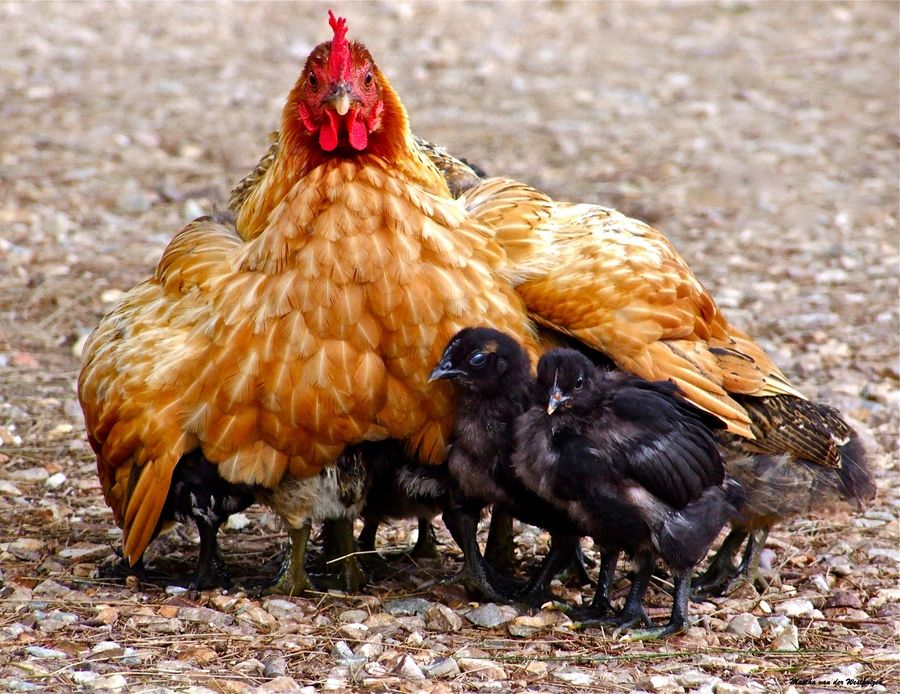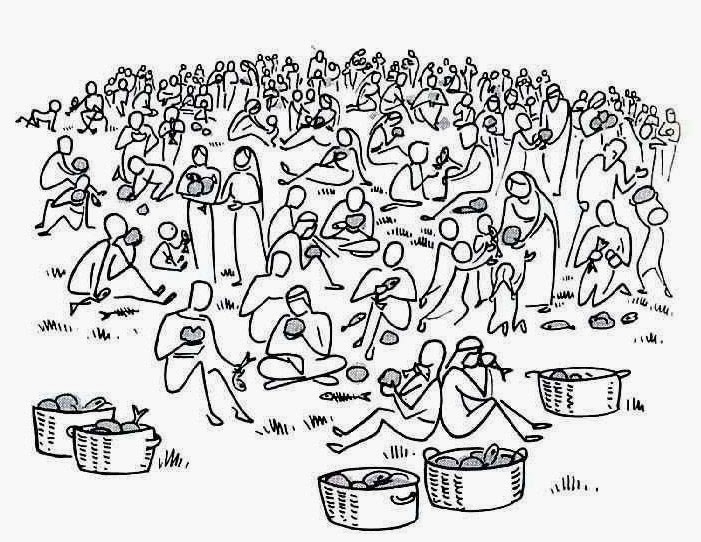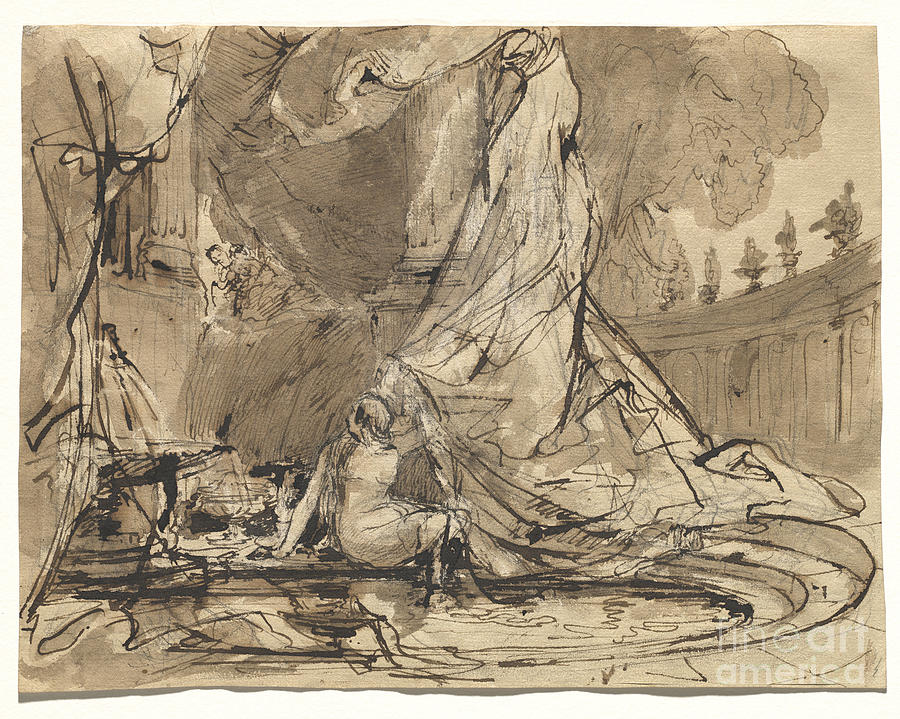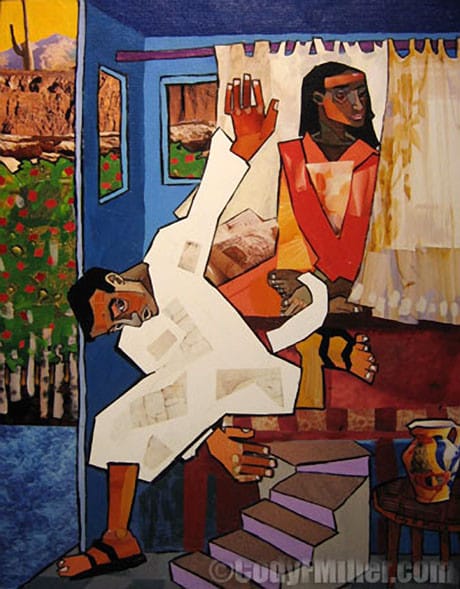What's the Word?
This week’s sacred story comes from Genesis 18:20-33 where Abraham goes back and forth with God to see how few people would prevent God from destroying the city of Sodom and Luke 13:1-9 where Jesus tells a parable about a fruitless fig tree.
Sometimes I just don’t know what to do with parts of the bible that are like this one. It seems so dark and violent, even heartless.
When I feel stumped or frustrated like this, and sometimes even when I’m overly excited about a text, running away with it…far far down a rabbit hole that may or may not be God’s leading but possibly my own, that’s when I lean on the Lutheran tradition of how we read the bible. Not only how to read scripture, but how do we view it, what is its purpose, how do we understand it, engage it. Martin Luther, in his writings, wrote that the bible is the “cradle where Christ is laid.” That is, the Bible holds Christ. It becomes the frame that helps us to see Christ, so whenever we approach this sacred text, we should be looking for how Christ is revealed in it. Where is the Good News, the Gospel in each line? But the important distinction here is that the Bible is NOT Christ; scripture is NOT God. So even as we cherish this library, we acknowledge its boundaries. The Bible is not sacred not because it is worthy or worship in itself, but because it points us to God. So I would say that yes, I’m a bible-believing Christian. But before and above that I am a Christ-believing Christian. CHRIST is the Word of God made flesh. The Greek word used for word is “logos.” It points to an understanding that the Word is more than text on a page. Here is an understanding of “word” that I living, moving, affecting. Which rings so true as we know that the words people say impact us, shape us, the words we say and names we use matter in a formative way. And so while the Bible is most certainly the Word of God, it is obviously not the only Word God ever spoke or speaks.
When Shannon (our Community Coordinator) and I read this text, she noticed that there was something that sounded familiar…
It reminded her of the Story of Abraham pleading for Sodom as the gardener pleads for the fig tree. This particular moment of judgement on the city also seems dark and violent, even heartless. But it is also deeply misunderstood. This story is one where culture has made damning connections between this sacred text and rather than connecting it within the larger frame of scripture, it becomes connected to fears outside of the Bible.
After the verses we read from Genesis, the story continues to fill in the backstory of why God is considering destruction of the city. Two angels were walking by and Isaac spot them, not really knowing who or what they are, only that they are strangers in town and so his faith compels him to welcome them into his home. Meanwhile, word gets out across town and soon a mob of men surrounds the house and insists that the strangers be thrown out into the street so that they can be “known”…in the biblical sense. Isaac refuses to let his guests become victims, and they narrowly get away to safety within the house. Now some take this backstory to mean that same-gender desire was the reason for God’s wrath on Sodom, but this isn’t really accurate and misses the bigger picture that God is about throughout scripture. First of all, the mob isn’t lusting after the angels, but seeking to assault them. Such violence is never about sexuality, it is always about power. There is no love in their hearts but a desire to demean and exploit. The people have come to see strangers not as angels to be welcomed and cared for, but objects they’re entitled to and have possession over. In the Kingdom of God, that is simply not the way it’s going to work. In the Kingdom of God, the dignity of all people is affirmed, and bodies are not abused but elevated, we know God in body and blood. In the Kingdom of God, creation is not objectified and exploited, valued only for how it might be used by those in power, seen only for what it can produce.
Now this, this reminds me of the Gospel - Jesus’s parable about the fruitless fig tree. The gardener sees life where the planter only sees opportunity costs, what he might be missing out on. The gardener does not measure the worth of the tree by how it can be immediately exploited, but nurtures and cares for the tree so that it might grow in the future. In an ancient Roman world where the power of empire is pressed down onto and people are only as good as their usefulness, Jesus says this system is a lie.
The people ask about the slain Galileans and wonder what their fate will be or how they can be different. Jesus says, repent or perish. Well, here’s a spoiler, we’re all going to perish. That’s what the ashes of Ash Wednesday remind us of. Death, in and of itself is a neutral thing, neither good nor bad. But if we’re only looking at death, only ever worried about how to avoid it, we’ll miss everything else. Repentance means change. The Greek word there is metanoia, literally…think bigger. Jesus invites us to see the big picture, the connections between old and new and the way in which they together point to a whole other thing – resurrection. Unless we think bigger, all we’ll see is death and a story that ends there. But Jesus is telling a story that goes on and on and on. Word without end.
Just as Shannon drew a connection between the gospel word the word of Genesis, God has been revealed in such connections for generations. Martin Luther talked about using scripture to interpret scripture. So no one piece stands alone, but we look for how the larger witness of the scripture and what God is and is about, to help us understand this particular piece. Any Jewish person of Jesus’ time would know the stories of the Torah well. Not just the rabbis, but everyone. So when one writer or text used a phrase of image that connected to another writing or story, they would easily be able to make that connection and find new meaning in the two being drawn together. The Word held riches not just what in was said before, or what was being said now, but in how they together create something new, something bigger. The Word of God draws us backward – to our history, to God’s persistence with us throughout time, to our grounding; and yet it also pulls us forward – pointing toward possibility and promise.
God’s word is still being spoken, still being heard, still creating.
I want to invite you to use today’s gospel reading to create a new Word, a poem, through a method called Blackout poetry. Blackout poetry is when a page of text is completely blacked out (colored over so that it is no longer visible) except for a select few words. When only these words are visible, a brand new Word is created from the existing text.
If you have a printer, print out the reading from the Gospel of Luke and use this as your source page. If not, find a newspaper of other text. God can be revealed there too.
So yes, you have permission to write on this page, to mark it up. You’re not being sacrilegious, you’re not literally blotting out scripture, and you’re not trying to recreate scripture, but you’re engaging it, responding to it, wrestling with it as Abraham’s grandson Jacob wrestled with God and seeing what new Word God may be revealing to you, through you. Using a pen or pencil, you’re going to follow the guide below to select a few key words and phrases, then a few more, and then finally to shade out the rest of the page so that only the words you highlighted remain visible to create a kind of poem.
1. Scan over the page and put boxes around the key words or phrases that for whatever reason, really strike you. They may hold particular meaning or significance, or just stand out to you.
2. Look over and read the whole page again. This time, use a pencil to lightly circle any words that connect to the word(s) you put boxes around. Resonant words might be expressive or evocative, but for whatever reason, these are the words on the page that stick with you. Avoid circling more than three words in a row.
3. Then, just shade out all the other words on the page, so that only your boxed and circled words remain visible. For doodlers, you can create art that connects back to your new poem on top of the “blackout” words.
For more blackout bible poetry, and our divine subversive inspiration, check out this insta account:
https://www.instagram.com/blackoutbiblepoetry/
To share your creation with our community, post a pic and use the hashtag #kindredlent







































